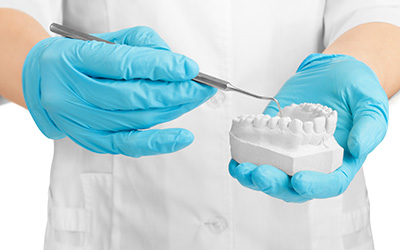Image Credit:
Image Credit:

Periodontal disease (the advanced stages of gum disease) can have a negative effect on your overall health, oral health included. It’s been found that, if left untreated, periodontal disease can contribute to heart disease, stroke, and coronary artery disease. Periodontal disease can cause harmful bacteria to be released into the bloodstream, which can mean deadly results.
When visiting your dentist, it’s important to provide a current and complete medical history. Please include any prescription medication you’re taking as well as any chronic ailments you may suffer from. This information is needed so that we’re able to consult with your general doctor before providing dental treatment.
To avoid gum disease, preventative measures must be taken. These preventative measures include the following:
For more questions regarding gum disease or to make an appointment with Dr. Kate Wilson, please don’t hesitate to contact Coastal Periodontics. Our office is located here in Portsmouth, New Hampshire.